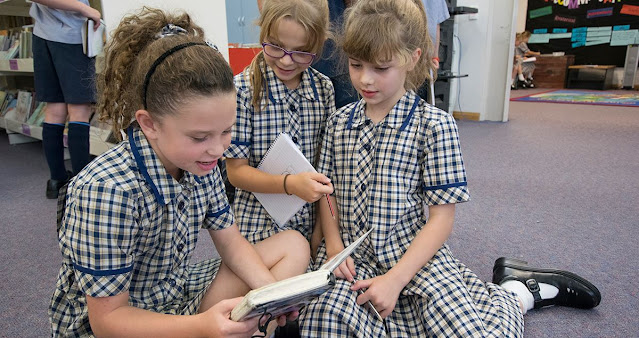When Writers Go Word Gathering
I once told a class of eager young writers that it was important to learn to eavesdrop and gather snippets of conversation and potential writing ideas.
One boy began to frown before telling me how his parents had informed him that listening to other people's conversation was not something he should not be doing. "My parents said it was bad manners to listen to other people's conversations.'
I pondered his words before offering a response,' Well, your parents have given you very sound advice, however writers have a special license enabling them to listen.' -It was all I had at that precise moment. I wanted him to be assured that I was not advocating eavesdropping for any kind of nefarious reason, rather it was for a very good purpose- improving our writing. He remained unconvinced it seemed.
Eavesdropping can prove a life source for any writer. Ah yes, a word whispered here, an utterance there, and all within the reach of alert ears and a pen poised to write. As Ralph Fletcher reminded us when writing 'Pyrotechnics On The Page,' 'We write with the ear as much as with the eye, or the mind.'
As each new writing day unfolds, I find myself listening for little snippets of conversation, brief word encounters, that may form part of future writing pieces. I collect them in my notebook, so I have a reference list for my writing projects. I recently found myself re-reading some of my older notebooks and reprising snippets.
The following quotes form part of my eavesdropping research:
'I don’t know why they stock ostrich, I would much prefer buffalo.'
Source: Park Slope Food Co-op Shopper
'I only sell good quality, you look, Raybans only $6!'
Source: Canal Street Market Stall
'What’s so romantic about living in a lighthouse? Let me tell you, it’s just me and a lot of fish – And I hate fishing!'
Source: Lighthouse keeper in radio interview
'Keith came into school this morning and announced that his pet snake had died. I could tell he was upset so I allowed him time to compose himself. So he goes to the back of the room, drinks a bottle of that blue juice and then begins throwing things around the room. That blue juice is so chock full of sugar –We’re the ones who should be drinking it – Then we could keep up with them!'
Source: Teacher
'Stop your gum thumping!'
Source: Man in street to friend
'I taught seventh grade for three years and then I realized I wasn’t a morning person –AND I didn’t like kids!'
Source: Woman overheard in café
'We used to collect spiders in jars from the different places we went because our son was doing a project on spiders. How's that for dedication?'
Source: Cafe conversation
Pre-Schooler: 'Do twins have the same name?
Mother: 'What do you mean?
Pre-Schooler: 'Like Holly and Holly.'
I was standing in a unisex toilet in London some years ago, washing my hands when a rather loud noise eminated from one of the cubicles and a female voice inquired, 'Was that you Pauline?'
This is rich fodder for the writer within. It feeds potential topics. It assists the writer to envision a scene in a writing piece. These words create scenes and scenarios.
These magical words come to the writer's ear floating on a sea of talk and if the writer is alert, they are plucked out of the air and eagerly scribbled across the notebook page in hope of further application at some future time.
Gathering such valuable snippets is a never ending project though, so listening to voices and snatches of conversation whether on the subway, on the street, in the park, at a school, or in cafes, is the very essence of writing ideas.







Comments
Post a Comment